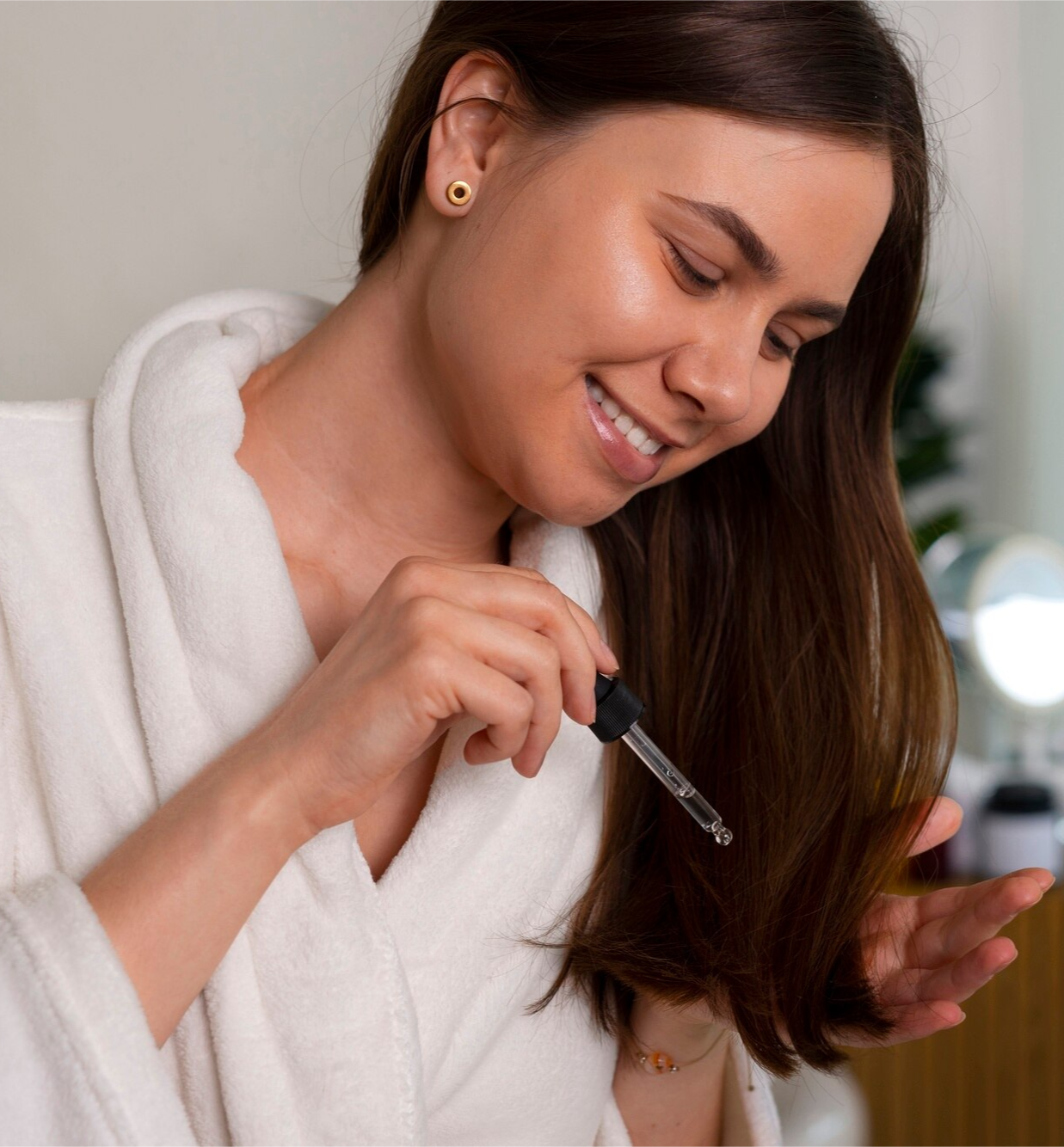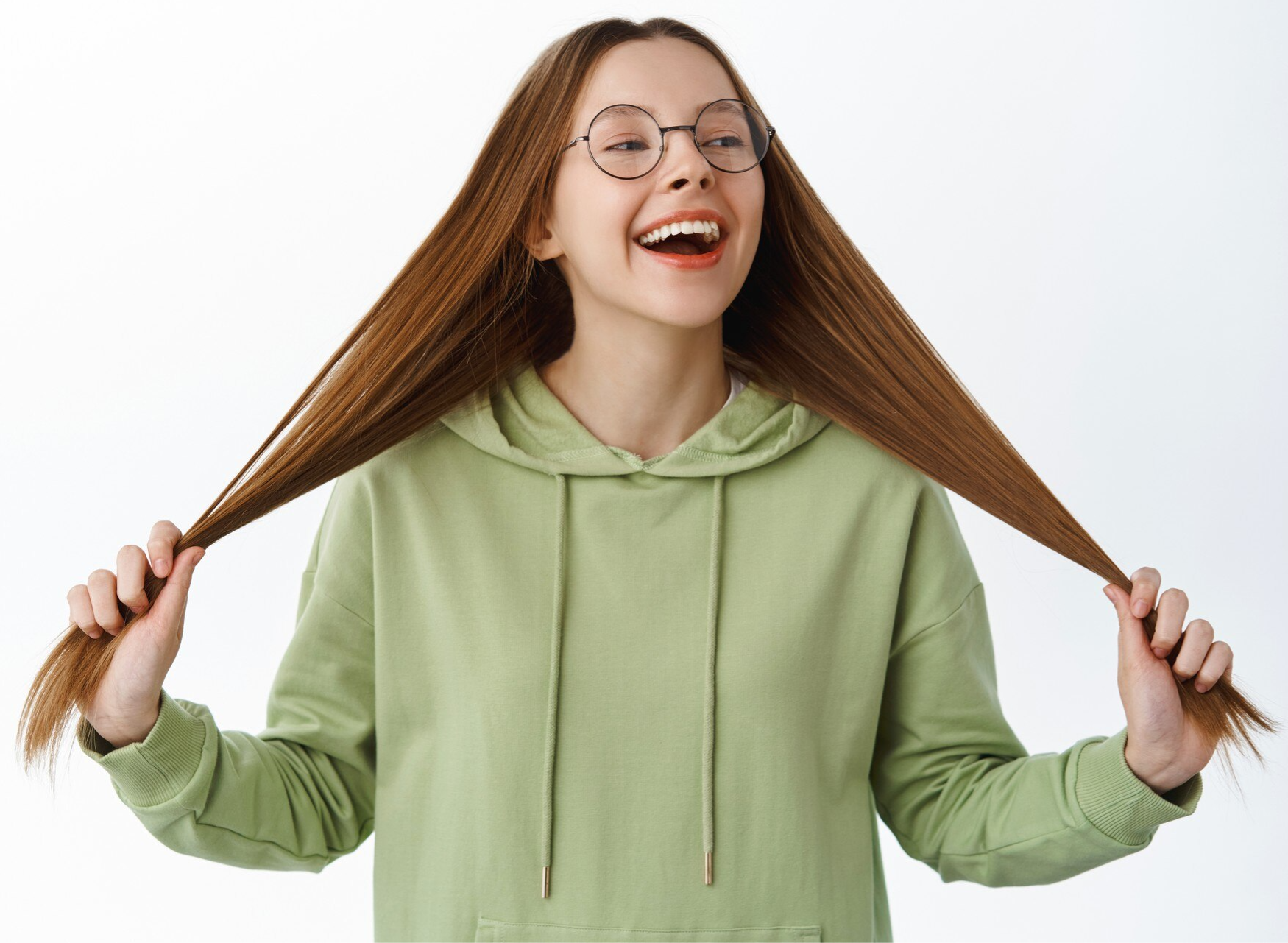In the ever-evolving world of home remedies and unconventional solutions for hair growth, one name that has piqued the curiosity of many is Vicks VapoRub.
Known primarily as a popular over-the-counter treatment for coughs and colds, Vicks has gained attention on various online platforms for its potential benefits in promoting hair growth.

This post aims to explore the effectiveness, science, potential side effects, and user experiences of using Vicks VapoRub for hair growth.
What Is Vicks VapoRub?
Vicks VapoRub is an ointment made by the Vicks brand and is widely recognized for its ability to relieve symptoms of cough and muscle aches.
It contains a mixture of ingredients, including menthol, camphor, and eucalyptus oil, all of which are known for their soothing and cooling properties.
These ingredients work together to provide relief from respiratory issues by opening up airways and reducing inflammation. However, its use is not just limited to treating coughs.
Over the years, Vicks has found its way into various DIY beauty treatments, one of the most talked-about being its use for hair growth.
The Science Behind Vicks VapoRub and Hair Growth
Before delving into whether Vicks can truly promote hair growth, it’s important to understand how it could potentially work. While there is limited scientific research directly linking Vicks VapoRub to hair growth, some of its key ingredients have properties that may contribute to improving scalp health, which in turn could lead to healthier hair growth.
Menthol
- Menthol is one of the primary ingredients in Vicks VapoRub. It’s known for its cooling effect, which helps to increase blood circulation when applied to the skin.
- Good blood circulation is crucial for healthy hair growth because it ensures that the hair follicles receive enough nutrients and oxygen. Some research suggests that menthol can help dilate blood vessels, thereby increasing the flow of oxygen and nutrients to the scalp.
- Additionally, menthol has antimicrobial properties, which may help prevent scalp conditions such as dandruff and fungal infections, both of which can hinder hair growth. By maintaining a clean and healthy scalp, the conditions for hair growth are more favorable.
Camphor
- Camphor is another essential component of Vicks VapoRub. It has soothing and anti-inflammatory properties that can help reduce irritation and inflammation on the scalp.
- Inflammation of the scalp can disrupt hair follicle function and lead to hair loss. By reducing scalp inflammation, camphor may help create a more conducive environment for hair to grow.
- Camphor also has a mild anesthetic effect, which could help relieve itchiness on the scalp, a common problem that often leads to scratching and irritation. In some cases, scratching the scalp can damage the hair follicles, leading to hair thinning or hair loss.
Eucalyptus Oil
- Eucalyptus oil is often used for its ability to clear up congestion and improve breathing, but it also offers some potential benefits for hair growth.
- Eucalyptus oil has antiseptic and antimicrobial properties, making it useful for treating scalp infections that could interfere with hair growth.
- Moreover, it helps stimulate circulation, much like menthol, which could, in theory, encourage hair follicles to become more active and promote hair regrowth.
Thymol
- Thymol, another compound found in Vicks VapoRub, is derived from thyme and is known for its antifungal and antibacterial properties.
- Scalp infections like dandruff, seborrheic dermatitis, or fungal infections can all block hair growth. Thymol can help alleviate such conditions by keeping the scalp clean and free from harmful microorganisms, thus supporting hair health.
Petroleum Jelly
- Vicks VapoRub also contains a small amount of petroleum jelly, which acts as a base to hold all the active ingredients together. Petroleum jelly can help to lock moisture into the scalp and hair, preventing dryness and brittleness.
- This could be beneficial for people with dry or damaged hair, as it can help to improve the overall texture and elasticity of the hair.
How to Use Vicks VapoRub for Hair Growth
If you’re considering using Vicks VapoRub to promote hair growth, it’s essential to apply it correctly to achieve the best results. Here’s a step-by-step guide to help you use Vicks effectively for your hair:
Step 1: Patch Test
- Before using Vicks on your scalp, it’s crucial to perform a patch test to check for any allergic reactions or skin irritation. Apply a small amount of Vicks on a patch of skin, such as the inside of your wrist or elbow, and wait 24 hours to see if any irritation or redness occurs. If you experience any discomfort, it’s best to avoid using Vicks on your scalp.
Step 2: Clean Your Scalp
- Start by washing your hair with a mild shampoo to remove any dirt, oils, or product buildup from your scalp. A clean scalp will ensure that the Vicks can penetrate and be absorbed more effectively. Avoid using conditioner at this stage, as it could create a barrier that prevents the Vicks from fully reaching the scalp.
Step 3: Apply Vicks VapoRub
- Take a small amount of Vicks VapoRub and massage it gently into your scalp. Focus on areas where hair thinning or loss is most noticeable. Use your fingertips to ensure that the product is evenly distributed across the scalp. Avoid applying too much, as Vicks is a strong ointment and can be uncomfortable if overused.
Step 4: Leave It On
- After applying Vicks, leave it on your scalp for at least 30 minutes. You may feel a cooling or tingling sensation, which is normal due to the menthol and camphor. If you feel any discomfort or irritation, wash it off immediately. For those with sensitive skin, it’s recommended to leave the Vicks on for no more than 15 minutes.
Step 5: Wash It Off
- After the recommended time, wash your hair thoroughly with lukewarm water and a gentle shampoo. You may need to wash your hair twice to ensure all the Vicks is removed. Be sure to rinse your scalp well to avoid any residue buildup.
Step 6: Repeat
- To see potential benefits, use Vicks on your scalp two to three times a week. Consistency is key when using any home remedy for hair growth, and it may take several weeks to notice visible results.
Does Vicks Really Work for Hair Growth?
While the ingredients in Vicks VapoRub have shown some promise in improving scalp health, there is little scientific evidence to definitively prove that Vicks can stimulate hair growth.
Most of the benefits associated with Vicks for hair growth are anecdotal, with many users reporting positive experiences on online forums and social media.
Hair growth is a complex process influenced by several factors, including genetics, hormonal balance, diet, and overall health. While Vicks may help improve circulation and promote scalp health, it’s unlikely to be a miracle solution for hair loss.
However, when used in combination with other proven hair growth treatments, it may offer some benefit, particularly for individuals looking to enhance the health of their scalp and hair follicles.

Potential Side Effects of Using Vicks for Hair Growth
Although Vicks VapoRub is generally considered safe when used as directed, there are some potential side effects to be aware of when applying it to your scalp.
Skin Irritation
Vicks contains strong ingredients like menthol and camphor, which can cause irritation, especially on sensitive skin. If you experience any redness, itching, or burning sensations, it’s important to wash it off immediately.
Allergic Reactions
Some individuals may be allergic to certain ingredients in Vicks, such as eucalyptus oil or camphor. It’s essential to perform a patch test before applying it to your scalp to avoid any allergic reactions.
Overuse
Using too much Vicks or leaving it on for an extended period may lead to scalp discomfort. Always follow the recommended usage instructions and avoid over-application.
Other Hair Growth Solutions to Consider
While Vicks may offer some benefits for hair health, it’s essential to consider other well-researched and proven methods for promoting hair growth. Here are some alternatives to consider:
Minoxidil
- Minoxidil is one of the most widely used over-the-counter treatments for hair growth. It’s FDA-approved and has been shown to promote hair growth in individuals with androgenetic alopecia (male and female pattern baldness).
Biotin Supplements
- Biotin, also known as vitamin H, is a water-soluble B-vitamin that plays a key role in maintaining healthy hair, skin, and nails. Biotin supplements may help improve the strength and quality of your hair, especially if you’re deficient in this nutrient.
Laser Therapy
- Low-level laser therapy (LLLT) is a non-invasive treatment that uses light energy to stimulate hair follicles and promote hair growth. It has been approved by the FDA for the treatment of hair loss.
Platelet-Rich Plasma (PRP) Therapy
- PRP therapy involves drawing a small amount of your blood, processing it to concentrate the platelets, and injecting it into your scalp. The growth factors in the platelets may help stimulate hair follicles and promote hair growth.
Conclusion
Vicks VapoRub has become an interesting home remedy for hair growth, thanks to the properties of its active ingredients like menthol, camphor, and eucalyptus oil.
While there is no solid scientific evidence to support its use for hair regrowth, some users report positive experiences with improved scalp health and reduced hair shedding.
If you decide to try Vicks for your hair, it’s important to use it correctly and perform a patch test first. As always, consult with a dermatologist or healthcare professional before starting any new treatment to ensure it’s safe for your skin and hair type.
References
Vicks VapoRub Official Website – https://www.vicks.com/
Learn more about the product’s ingredients and usage recommendations directly from the manufacturer.
Menthol and Pain Relief – https://www.ncbi.nlm.nih.gov/pmc/articles/PMC6101777/
A research article exploring the role of menthol in pain management and its topical application.
Eucalyptus Oil and Sinus Relief – https://www.ncbi.nlm.nih.gov/pmc/articles/PMC6413046/
A study examining the effects of eucalyptus oil on respiratory and sinus health.
Thymol and Scalp Health – https://www.ncbi.nlm.nih.gov/pmc/articles/PMC5357116/
Exploring the antimicrobial properties of thymol and its potential role in promoting healthy hair growth.
Petroleum Jelly and Hair Health – https://www.ncbi.nlm.nih.gov/pmc/articles/PMC5369572/
A study examining the impact of petroleum jelly on scalp moisture retention and hair follicle health.